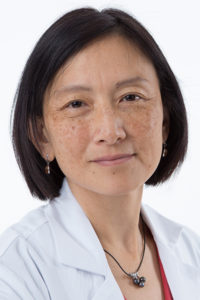
New scientific breakthroughs and clinical trials are rapidly evolving the field of critical care medicine, but not all findings are adopted immediately, for various reasons.
Michelle N. Gong, MD, is one of several presenters who will be providing a literature update for critical care physicians during the postgraduate course Update in Critical Care Medicine: What Recent Articles May Change Practice and How Much? on Saturday at 1 pm in room 212A of the convention center. The ticketed session will discuss those scientific findings, their implications, and how they might impact care to help clinicians better understand the findings.
“CHEST offers the opportunity for clinicians to come from around the country and hear from the experts about the nuances of what some of these trials are,” said Dr. Gong, director of critical care research and director of critical care medicine at Montefiore Medical Center. “Having sessions like this at CHEST gives us an opportunity to present the findings again, but put it into context of what it is we need to know to take care of patients.”
Dr. Gong will be reviewing recent trials and important studies in mechanical ventilation, while other faculty will review sepsis and shock, acute respiratory failure and acute respiratory distress syndrome (ARDS), delirium, long-term outcomes, and post-ICU syndrome.
She will review a multicenter randomized control trial that looks at using higher pressure in patients with ARDS, who have a very high mortality—anywhere from 35-50%.
“Any studies that indicate it may be helpful in understanding how to use the mechanical ventilator to support these patients are particularly useful,” Dr. Gong said.
She also will address a meta-analysis of all various clinical trials that have looked at oxygen therapy in patients with an acute illness, such as heart attach, stroke, or respiratory failure.
“This is important partly because oxygen therapy is probably one of the most common treatments we give patients in the hospital, so common in fact we assume we know exactly what we need to do with it,” she added. “This systematic review kind of brings together a large number of studies that have been done in trials, to give us a better understanding of how we should be using this very common treatment.”
And finally, Dr. Gong will discuss a study that was published in the New England Journal of Medicine that examined whether or extracorporeal membrane oxygenation may be helpful as a rescue therapy in patients with very severe ARDS.
It’s important to evaluate studies because even though a study is published, doesn’t mean it will get disseminated to every clinician, she said.
“One of the unfortunate assumptions is: If we make a discovery about what we should do/not do in practice and how it may change outcomes, even though it gets published and it gets mailed to clinicians to read, we’ve found it can take upwards of 15 years before the practice is adopted.”





